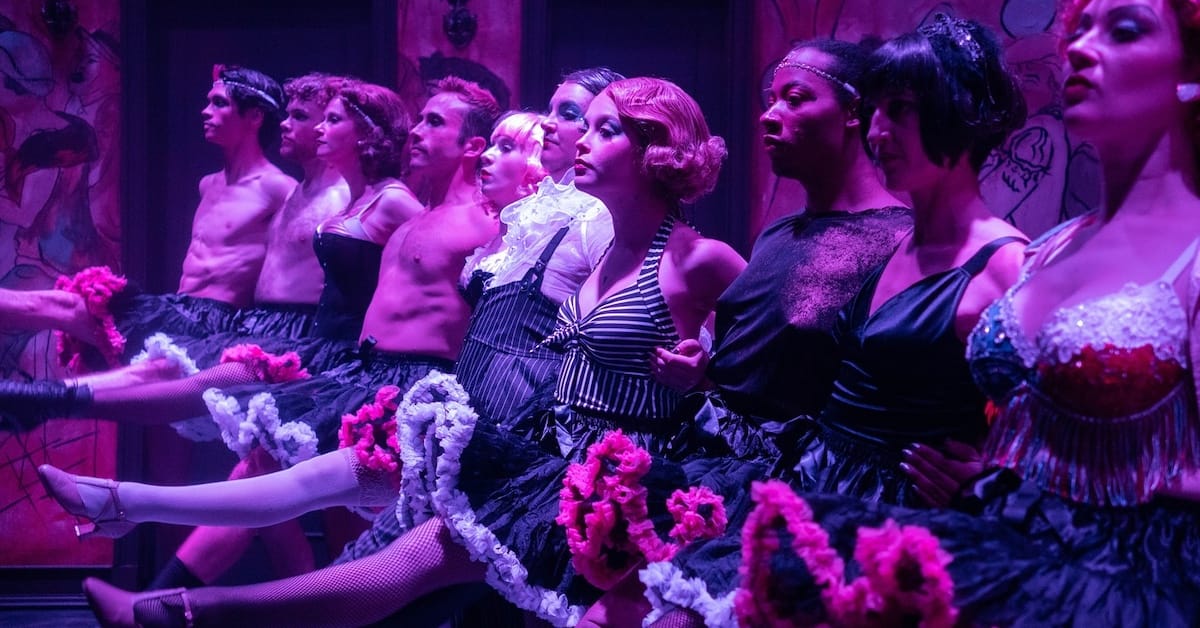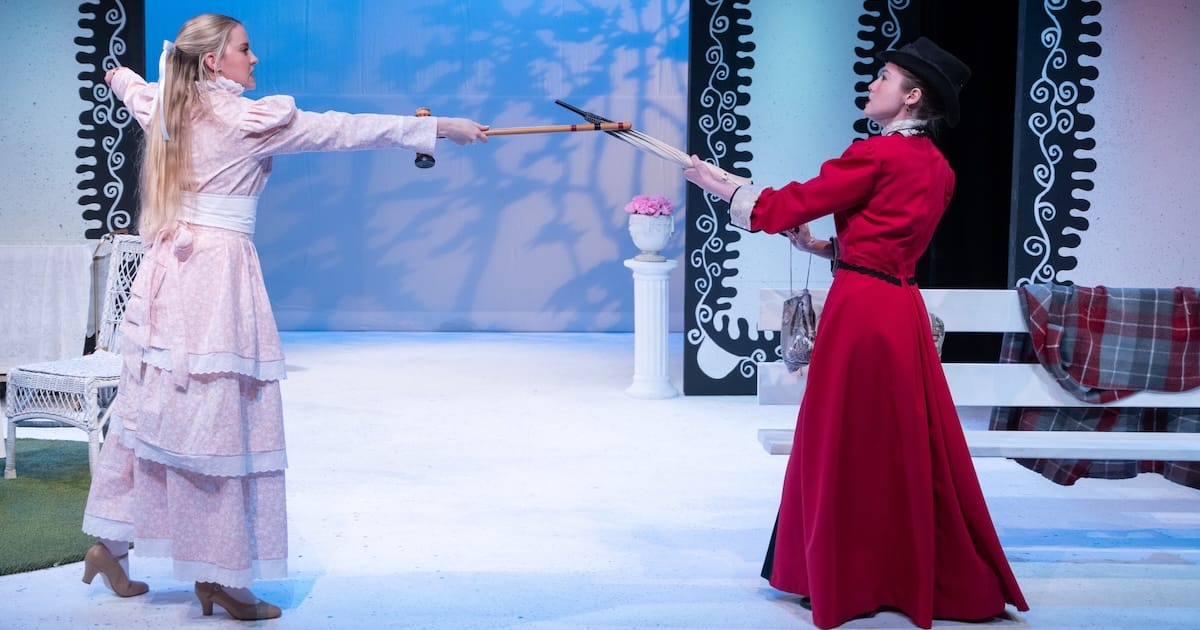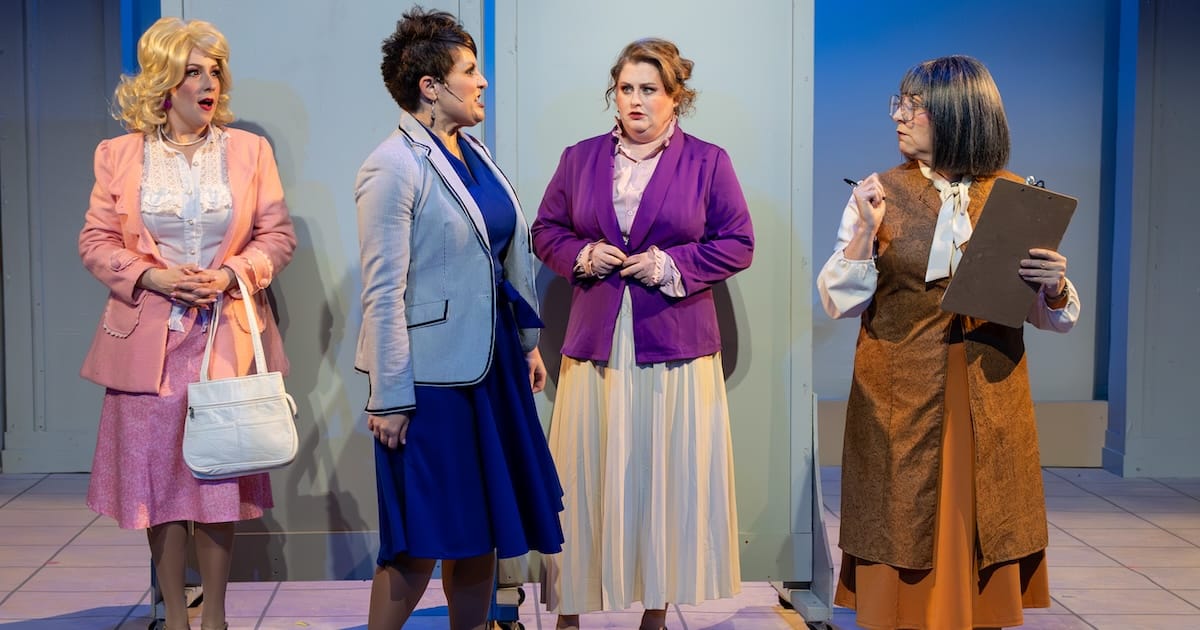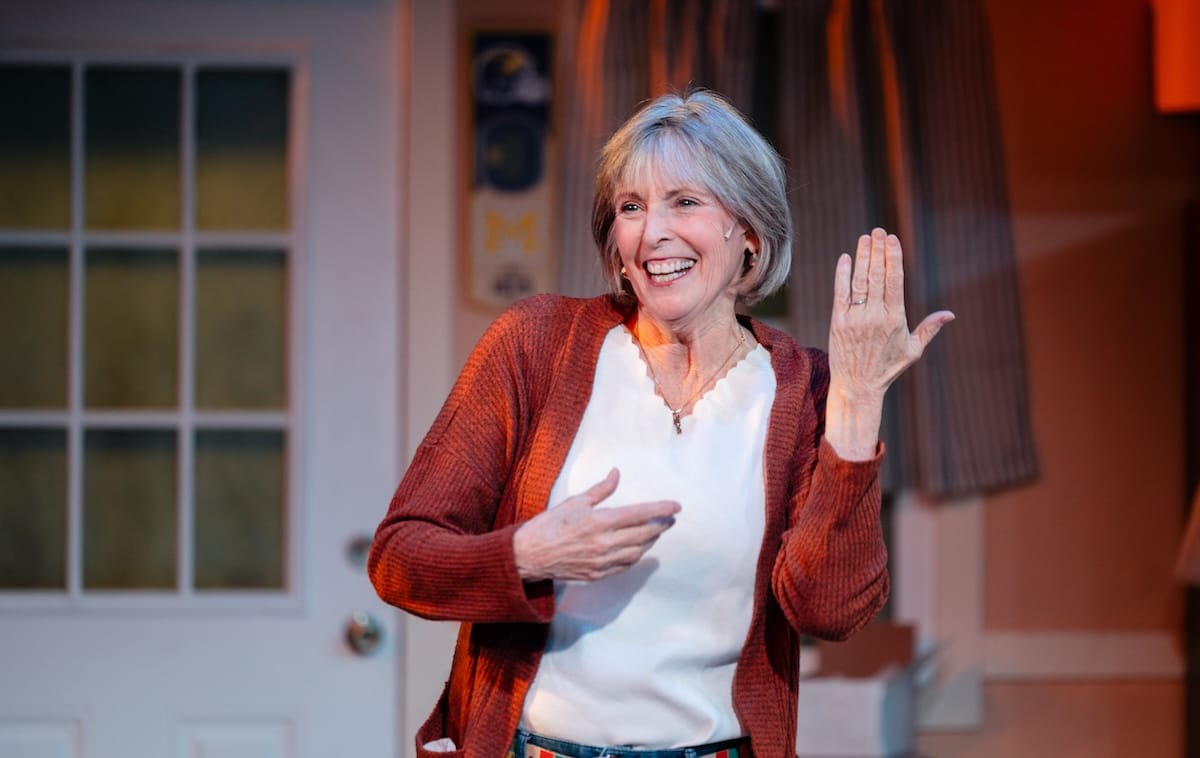It’s a well-rounded, well-done production of the classic musical
You never quite know what you’re going to get in terms of quality from small-town theaters, but the Breckenridge Backstage Theatre’s production of Cabaret can stand up to — and possibly beat — big-city shows any night.
Upon first glimpse of the cabaret — where life is beautiful — the scene imparts an energetic and racy party celebrating the new year at the Kit Kat Klub in Berlin. The girls, are, indeed, beautiful with their lascivious costumes, and the boys are equally seductive.
Emcee L. Bryce Welborn does a superb job embodying the role as they engage, and interact, with the audience (don’t worry — they just point — you won’t find anyone snuggling up on your lap or really calling you out). It’s as if this role were made for them, and their experience as an acting coach certainly pays off in spades. They command control over the theater with a strong and mesmerizing presence, sometimes belting out notes that shoot through the audience, straight to the back of the theater in a masterful manner. They draw you into the decadent world of the Kit Kat Klub from the start, allowing you to go on the emotional ride of the ups and downs to come.

Photo: Branden Smith
A well-rounded cast
Director Keith J. Warren has assembled a great cast, with literally every actor excellent in portraying their roles. At no time do they break from character, causing disappointment or an invisible wall between the audience and stage.
Samantha Toberman and Michael Sullivan are sweet as the shy older lovers, Fräulein Schneider and Herr Schultz, respectively. Their connection makes it even more devastating when Fräulein calls off their engagement after someone throws a brick in their window, expressing anti-Semitism.
Meanwhile, Clifford Bradshaw and Sally Bowles — played quite convincingly by Drew Black and Maya Hernandez-Pearson — convey their stormy love affair with vigor. Hernandez-Pearson’s rendition of “Cabaret” in Act Two is especially haunting, as her character, Sally, stumbles through the song. She’s obviously drunk, yet is still able to render the vocals perfectly, after the upheaval of an abortion.
And that’s the beauty of “Cabaret.” It manages to open on a high note — while foreshadowing the dark side to come — and then convincingly takes audiences through its twists and turns. Sally remains frivolously oblivious throughout her own personal crisis, not to mention the country’s impending devastation as the Nazi movement begins to sweep through the land.
The cast delivers an excellent — and pleasantly uncomfortable — rendition of “Money,” with their robotic and zombie-like movements. In fact, Warren’s choreography throughout “Cabaret” is wonderful, as are the vocals, which fill the theatre, by all cast members.
The set, comprised of four doors and a main-stage red curtain within a painted club scene, is satisfying, though I wish it had extended vertically beyond its oversized one-story, all the way up to the higher ceiling. That would have made for greater immersion, particularly for audience members sitting in the middle and back of the theater; those sitting in the first five or so rows probably felt more immersed in the scene.
Act One, which feels about 10 minutes too long at just about 1 hour 20 minutes, ends on an extremely somber note as Nazi sentiment lurks. It caused the mood during intermission, particularly as audience members filed out of the theater, to be extremely subdued and quiet — and with good reason: Today’s political and social climate calls for seriousness and upset, particularly around the issue of anti-Semitism, and that was felt in the crowd.
Cabaret does end abruptly, without the uplifting fanfare of other musicals. While the final scene in other Cabaret versions show the Emcee removing his outer coat to reveal a concentration camp prisoner uniform, suggesting how some of the characters may end up, in the Backstage Theater presentation, they remove their coat to reveal a moment of complete nakedness. This ending sets a tone, which inspires conversation long after the production closes.
Kimberly Nicoletti is an award-winning journalist, with accolades from the Colorado Press Association, Warren Miller/The Ski Journal, and Home Instead. Her work has allowed her to: interview international athletes, musicians, artists, chefs and entrepreneurs; write national travel pieces; review art, theater and dance; create he said/she said movie reviews; cover business and politics; and more.






Leave A Comment